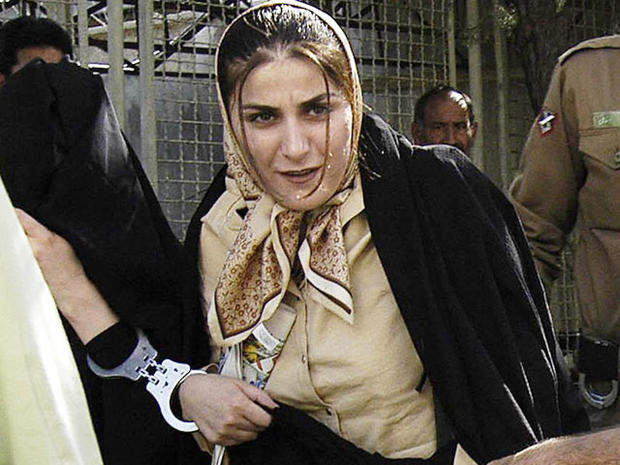Neighbourly Perspective
"Iran has been a neighbour for millennia, and will continue to be a neighbour for millennia. We have no issue with seeking to develop the best terms we can with Iran."
"But after the revolution of 1979, Iran embarked on a policy of sectarianism. Iran began a policy of expanding its revolution, of interfering with the affairs of its neighbours, a policy of assassinating diplomats and of attacking embassies."
"Iran is responsible for a number of terrorist attacks in the kingdom; it is responsible for smuggling explosives and drugs into Saudi Arabia."
"And Iran is responsible for setting up sectarian militias in Iraq, Pakistan, Afghanistan and Yemen, whose objective is to destabilize those countries."
Adel al-Jubeir, Saudi ambassador to Washington
Each, in their own way, is advancing the agenda of Islam, which sternly admonishes its faithful of their uppermost obligation to the faith, expansion and conquest through jihad. This is the jihad of persuasion and of war, to accomplish what the Prophet Mohammed enjoined upon his followers, to ensure that Islam achieves its sacred destiny by achieving worldwide domination in its imperialist ambition to conquer all in the name of Allah. Inshallah!
And god does so will.
Iran's Ayatollahs' manner of achievement is that of the scimitar, the crude and utilitarian method of force led by brute intimidation and fear of death. Alternately, nuclear-tipped missiles will do. Iran's victory is its inculcation in the minds of those who adapt to its jihadist agenda that they do the work of god by clasping death to their bosom, finding glory in martyrdom, sneering at those lesser mortals who fear and wish to evade death, while they hail it as their salvation.
The Saudis' version of jihad is to invariably convince their adherents through Wahhabist teaching that their stern mode of Islamist faith adheres to the original, achieving their purpose by the stealth of
influencing and convincing non-Muslims that their puritanical Islam is theistically authentic, its austere and noble countenance reflecting the purity of worship of the almighty. Their Wahhabist graduates went off track when they embraced violent jihad.
There is not that much that separates the Shiite version of jihad achieved through glorious martyrdom and the Sunni brand that promotes death through terrorism since each uses the very same arguments and tactics to achieve similar aims. But that they are separate versions of Islam does bring them at loggerheads toward one another, each disparaging and dismissing the other as unoriginal versions of loyalty to Islam.
"We don't tolerate terrorism. We go after the terrorists and those who support them and those who justify their actions. Our record has been very clear, contrary to their record. They harbour Al-Qaeda leaders. They facilitate Al-Qaeda operations. They complain about Daesh (Islamic State group), but Iran is the only country around the negotiating table that has not been attacked by either Al-Qaeda or Daesh."And that may perhaps be attributed to the fact that the Islamic Republic of Iran is unequivocally disposed to hatred of the West, Israel and the United States in particular, their "great" and "little" Satans, their despised enemies of choice. While the Kingdom of Saudi Arabia is seen by the jihadists that they themselves bred through the auspices of the Wahhabist madrasas as sell-outs to the West, sly companions in corporate oil enterprise to the United States of America.
"Our scholars and our media have been very outspoken. We were the first country in the world to hold a national public awareness campaign against extremism and terrorism. Why would we not want to fight an ideology whose objective is to kill us?"A public awareness campaign geared to defend against attacks from the very Frankenstein that was created in the madrasas that Saudi oil money built and maintained to ensure that Wahhabist Islam was paramount, in competition now with the Iranian Shiite brand. As for defence of Saudi troops in Yemen, battling the Iran-backed Shiite Houthis as defending their sovereign borders, and Sunni Muslims against the malicious violence of Shiite Muslims, how explain no similar presence in Syria for the same reason?
Similarities to the punishments meted out by the Islamic State with those that the Saudi state imposes are striking. Not only mature men and sometimes women put to death for offences against the state and against Islam, but young people as well. By crucifixion at times and far more often beheadings. But discreetly, with nothing like the fanfare and pride that Daesh exuberantly flaunts in their beheading and other atrocity-laden videos.

Saudi Arabia follows sharia law and while
many of the beheadings were allegedly carried out in line with this
strict interpretation of Islamic law, drug-related offenses are considered "ta'zir,"
meaning that the punishment is not described in the Quran. Above is a
photo allegedly showing a Saudi sanctioned beheading shared by
international terrorism watchdog group Terror Monitor.
Labels: Al-Qaeda, Conflict, Iran, Islamic State, Saudi Arabia, Shiite, Sunni

0 Comments:
Post a Comment
<< Home